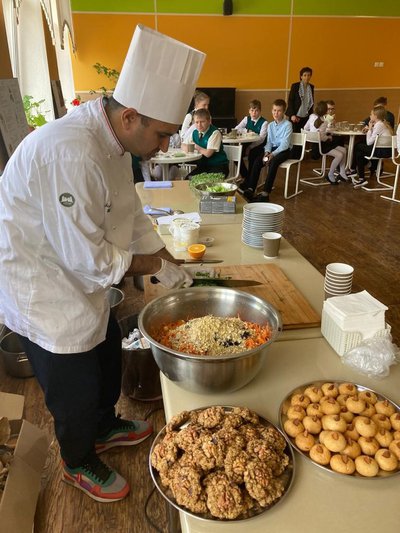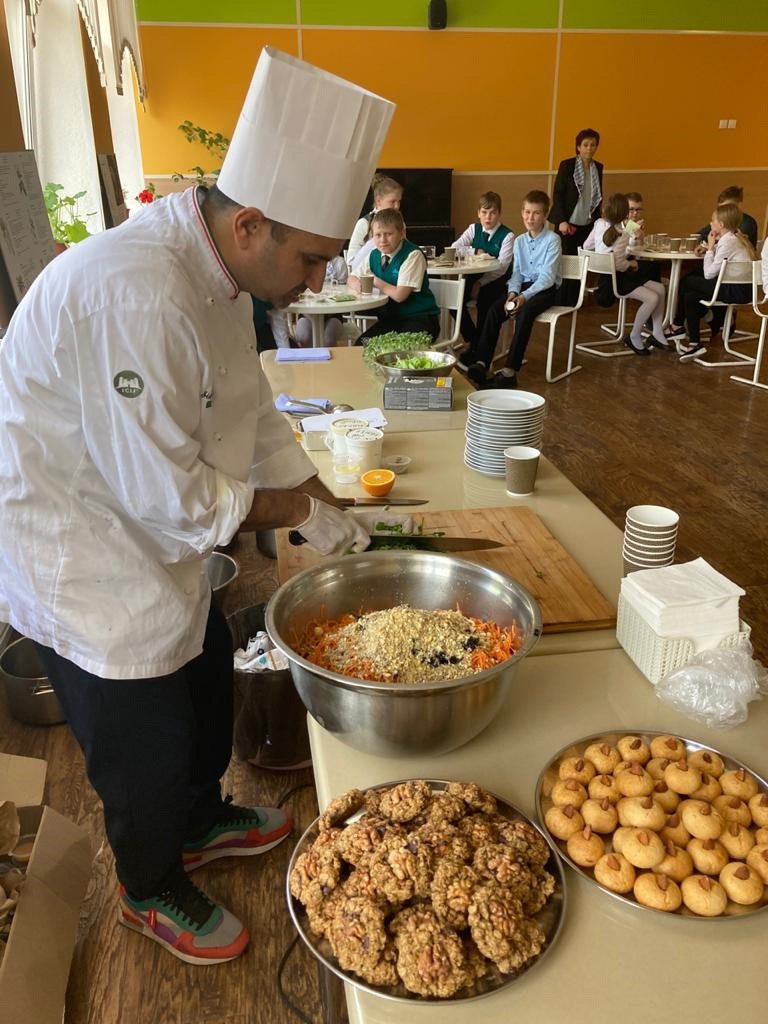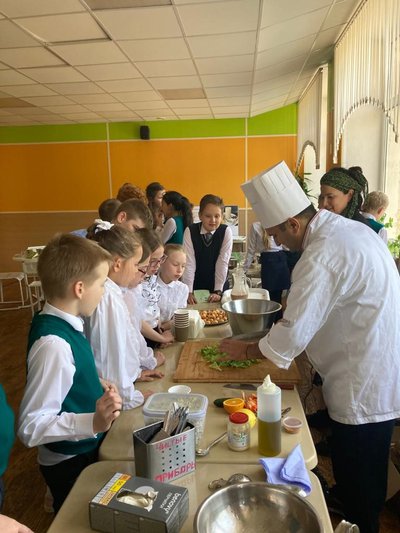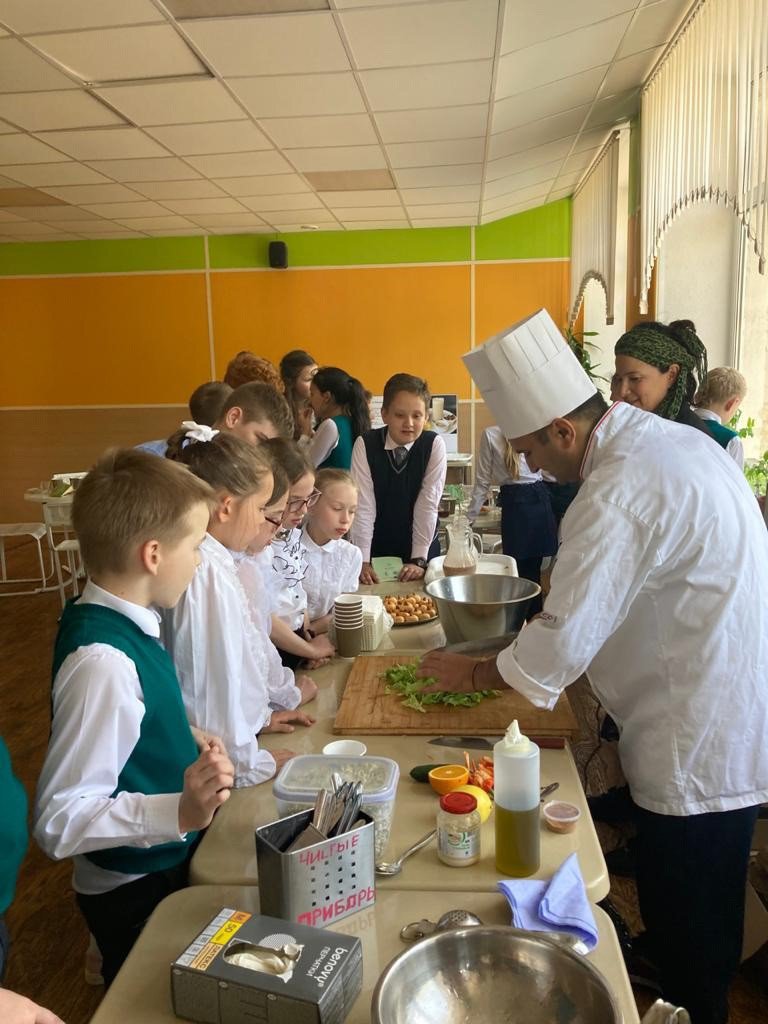Necessary Steps
- A 2-hour plant-based cooking workshop for young people of 10-14 years of age is introduced into the school’s curriculum.
- Teachers may invite restaurant chefs to share their recipes and participate in cooking enjoyable dishes with young people. Teachers and chefs may collaborate on health and sustainability education.
- Workshop schedule
- about 30 minutes to learn about recipes and health benefits surrounding plant-based food,
- about 45 minutes to cook, and
- about 15-20 minutes to taste all the dishes and to clean up the kitchen.
- This tool uses plant-based food items, which are either grown on the school premises as recommended by the tool [link], or purchased by young people.
- The recipes include plant-based ingredients such as sprouts, lettuce, parsley, cilantro (coriander), and others herbs which can be grown in school premises.
- The weights and volumes of these school-grown plants may not be sufficient for full meals, but can be added-to by store-bought produce.
- A range of tasty dishes such as smoothies, different salads, and a vegetarian pilaf (seasoned rice) can be prepared within the workshop schedule.
- At the end of the workshop each student receives a small booklet with botanical, health, and sustainability information about the products they have grown/ used, along with a collection of recipes to share with their parents and cook at home.
More Issues To Consider
- Taste aspect can be effectively dealt with by educating about seasoning and spices.
- When organising a workshop on healthy plant-based cooking and eating, concepts such as plant-based food, and vegetarian and vegan diets can be explained, and nutritional advice offered regarding balanced meals.
- There may be additional costs for external guests (e.g. chefs or experts) presenting at the workshop. Alternatively, it may be possible to organise the event in collaboration with public institutes concerned with nutrition or cooking professionals, which may help mitigate costs.



